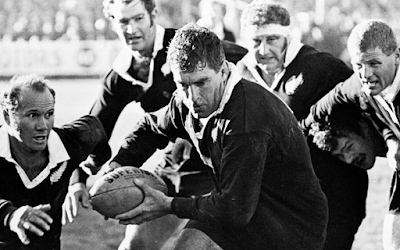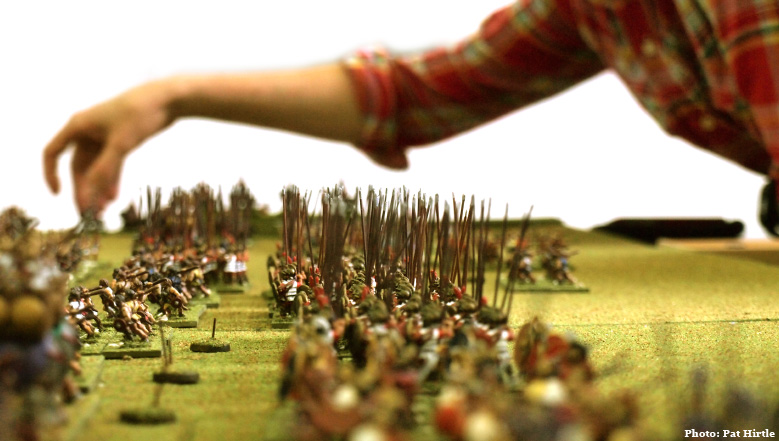Meads, nicknamed Pinetree, was a giant of the amateur era who brought speed, ball skills and a toughness to his rugby which the New Zealand game has been trying to live up to ever since.
Until rugby turned professional, Meads was the most-capped All Black, and as well as being a mythic figure in his own right, his partnership with his brother Stan, who also played lock forward, was a legendary combination for King Country and All Black rugby.
Modest and unaffected, Colin Meads was inspirational for those around him. In an era when violence was an essential part of the game, he was the man who would never give an inch. It seems brutal now, but in those days you needed men in your team who would give as much as they received and would never back down from a physical confrontation.
There are many stories about Meads the rugby player - playing South Africans with a broken arm; exacting revenge upon a Frenchman who opening up his head with a boot only to find at game end he'd been wreaking vengeance upon the wrong player - but one of my favourites is that told by Wilson Whineray, the great All Black captain, during the Colin Meads episode of the TV show This is Your Life (12 mins in for the segment).
As Whineray tells it, during the fourth test against the Springboks in 1965 (this of course being before replacement players were allowed in rugby), brother Stan had taken a heavy knock to the head and was receiving medical attention.
Whineray went over to him and said something like "Stan, we'll manage. Take a minute. Half-time's coming up; get yourself right."
Then Colin Meads walked over and took charge.
"How are you feeling, Stan?" he asked.
"Not too good, Pinetree," was the reply.
"Well," said Colin, "you'd better get good in a hurry. We've got to lock a scrum for New Zealand in a few minutes. We've never gone backwards before, and we're not going to start now."
Brother Stan got back to his feet, joined his brother in the scrum, and the All Blacks went on to win the match and the series.
After his rugby career Meads remained a well-known personality in his home town and in New Zealand as a whole. He belonged to the same small rugby club all his life, would have a beer after the game in the clubrooms just like anybody else, and would sign autographs or chat with admirers any time.
He did not make any money from playing rugby, instead earning his living on the family farm. In later years he got the chance to do some television commercials, but until times got hard for him he would donate the money to charity, particularly the IHC. Not only did he quietly donate his own TV fees to these charities, but he would personally go door-to-door gathering donations and selling raffle tickets in the evenings to raise further funds for them.
It was estimated in 1988 that he had raised several hundred thousand dollars for IHC on his own.
There were inevitably disappointments in his life, and there were some incidents of foul play committed on the field which he apparently later regretted. Famously, he was the first (and until about two months ago) the only New Zealander to be sent off in a rugby test match, and he thenceforth exchanged yearly postcards with the referee who did so, which is perhaps a measure of the man. Hard on the field, but held no grudges off it. He made no complaints, and earned the respect of team-mates and opponents around the world.
When New Zealand was in the running to hold the Rugby World Cup of 2011, and the International Rugby Board negotiations were in the balance, it was Colin Meads who was brought in to undertake some last-gasp bar-room diplomacy with his old rivals.
Needless to say, it worked, and New Zealand won the right to host the cup.
Rest well, Pinetree. No more scrums to lock, games to win, speeches to give or raffle tickets to sell, but he will always be remembered as one of the greatest his country has produced.
 |
| Photo sourced here. |

A great player and one of a very few (Willie John McBride?) who set defined the game for the whole of the next generation. Even today someone who players measure themselves against. RIP.
ReplyDeleteIt is hard now to conceive of life in the amateur era. Teachers or policemen getting a long weekend off to play in the international and others not even that. I remember Gareth Edwards comment that he did not mind not being paid but resented that when they went to London they stayed in a 3 star hotel and had to eat off the set menu. Needless to say the selectors and committee got 5 star and a la carte.
Yes, Willie John McBride was one of his great mates, actually. Cut from similar cloth, I think.
DeleteYou're not wrong about selectors and committee: some things never change!
Indeed we have lost a legend today. RIP Sir Colin.
ReplyDeleteYes, a genuinely sad day.
DeleteHe is a presence that will be missed - he defined the 'good but hard kiwi bloke'.
ReplyDeleteYep, the landscape seems a little emptier for his passing.
Delete